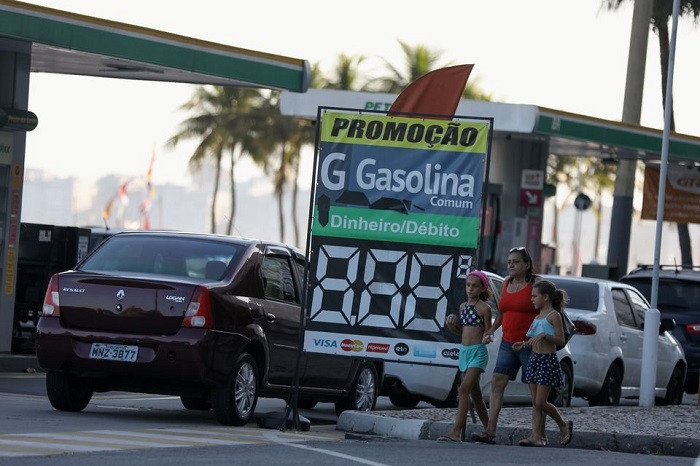Popular Reads
Top Results
Can't find what you're looking for?
View all search resultsPopular Reads
Top Results
Can't find what you're looking for?
View all search resultsHow Brazil and Indonesia can work together to improve air quality
The two countries have important roles in reshaping the Global South, through their cooperation in clean energy toward creating better living standards while protecting the environment.
Change text size
Gift Premium Articles
to Anyone
T
ackling the challenges posed by air pollution is one of the most pressing issues we face when it comes to urban mobility. Large metropolises such as São Paulo and Jakarta are under the constant strain of an ever-growing fleet of vehicles, and their exhaust gases significantly impact the air quality of our densely populated cities.
The World Health Organization estimates that 4.2 million people die every year in the world due to hazardous levels of air pollution.
City planners and officials naturally resort to mass transportation as an alternative to reduce the demand for private vehicles. However, mass transportation projects can only go so far and are limited by the associated costs and pace of construction, especially in developing countries.
It is therefore necessary to strike a balance between ever-increasing urban mobility and the need for good air quality. In this context, Brazil’s 50 years of experience with biofuels – chiefly bioethanol, the exhaust from which emits no particular matter – can help Indonesia to ease pollution.
Every liter of gasoline sold in Brazil contains 27 percent of ethanol. In parallel, around 90 percent of the Brazilian fleet of passenger cars is equipped with FlexFuel engines, which can operate with any ethanol-gasoline blend. To put this in perspective, Brazil’s largest city São Paulo, comparable to Jakarta in terms of size and population, in 2021 managed to replace around 64 percent of the gasoline consumed by its 7-million-strong vehicle fleet with ethanol.
This achievement should not be understated: In the 1990s, São Paulo figured among the most polluted cities in the world, whereas in 2021, the city ranked 1179th in terms of air pollution, with general air quality similar to that of cities like Amsterdam, Berlin or Madrid.
Biofuels and electricity – combined or complemented, since there will be room for both – will be a fundamental part of the future of mobility. If a country’s electrical matrix is not clean, then electrification is not the solution for reducing emissions and making our air cleaner. In our quest to reduce pollution and decarbonize the economy, biofuels will definitely have their share.
The cooperation between Brazil and Indonesia in the area of biofuels has already started. Government authorities and private sector players from both countries have an established relationship.
President Joko “Jokowi” Widodo’s launch in November 2022 of the Sugarcane Bioethanol Program for Energy Security, which aims to initially add 5 percent of ethanol (E5) to gasoline and then gradually increase it to 10 percent (E10) and 20 percent (E20), opens a new opportunity for energy cooperation. The Brazilian government, public and private entities can play an important role in helping Indonesia achieve its goal of increasiong national bioethanol production.
It will be thus my great honor to open the seminar “Sustainable Mobility: Ethanol Talks Indonesia” on Oct. 9. Organized by Brazilian, Indonesian and ASEAN stakeholders, the event aims at fostering the partnership between Brazil and Indonesia in biofuels and providing an opportunity for cooperation and dialogue between experts, policymakers, regulators and industry representatives from both our countries as well as other ASEAN countries.
These stakeholders will be able to approach how to scale up ethanol production, taking into account the Brazilian experience. Discussions will also include ethanol’s economic, social and environmental benefits for sustainable mobility, as well as some of the most important issues of implementation.
Experts from the Brazilian Sugarcane and Bioenergy Industry Association (UNICA) and the Brazil Ethanol Cluster (APLA), together with officials from the Brazilian ministries of mines and energy and foreign affairs, will discuss possible knowledge gaps and offer cooperation in transferring the Brazilian experience with ethanol, and identifying with Indonesian counterparts where and how our experience would be applicable or how it could be adapted when necessary.
Both Brazil and Indonesia have very important roles to play in the ongoing reshaping of the Global South. It is my strong belief that energy and energy transition themes are and will remain pivotal in this new geometry as our governments and societies strive to harmonize the demands for better living standards with the preservation of the environment.
***
The writer is the foreign minister of Brazil.











